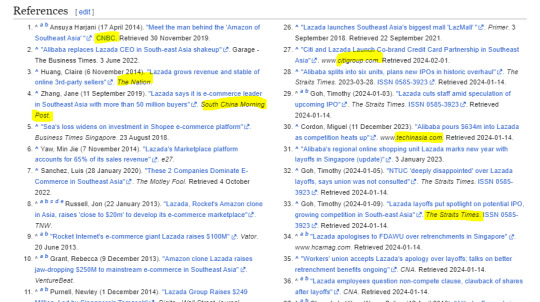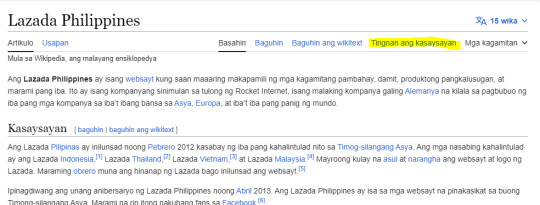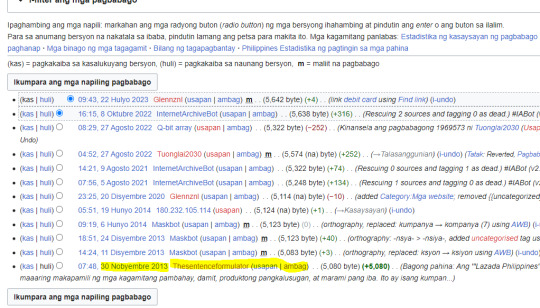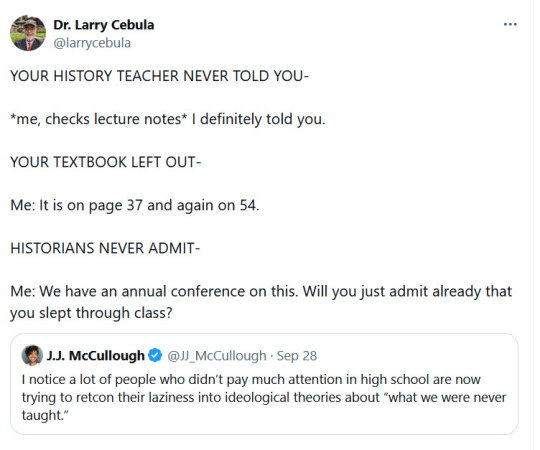#How to publish on Wikipedia
Explore tagged Tumblr posts
Text
SEO: Wikipedia Writing and Publication
SEOs and Digital Marketers know that getting a Wikipedia page and backlink is a very juicy digital achievement. The link juice is the primary aim for it, plus the kind of branding/online presence it establishes as well.
WRITING
It's not so easy to get published on Wikipedia. The approving Wiki editors are very strict. Aside from grammar, the content has to be unbiased. It won't get published if it sounds like PR content. Here's an example between PR sounding and objective/unbiased:
PR - "The BlahBlah Company is the best digital agency founded in 2018 by John BlahBlah, a multi-awarded SEO guru with over 2M followers on social media."
Objective / Unbiased - "The BlahBlah Company is a digital agency founded by John BlahBlah in 2018."
Avoid superlatives and other statements that don't have supporting published written articles/links from credible sites (like famous news sites, organizations, etc) for such claims.
CITATIONS
Now that you know the difference between sentence formulations, next would be backup links/resources to support your statement/s.

Like I said, every statement to be written must have a supporting backlink. The screenshot below shows that there are "citation links" as to why such statements were written and approved by Wiki editor/s.

When you go down to the bottom of every Wikipedia article, there's a list of citation links to show proof that the statements in the article are correct/valid.

PROGRAMMING LANGUAGE / CMS
Formatting the content such as bold, italic, hyperlinking, and so on is different compared to your standard HTML. There would be a bit of a learning curve for this but they have a guide for formatting. You are allowed to preview your work before submitting/publishing it in their CMS.

THE SANDWICH METHOD
To seem like I was an objective/unbiased contributor in Wiki, I had to mask myself virtually. I didn't sign up using my work email (e.g. [email protected]) and I used my home/mobile hotspot Internet connection (IP address). Then, the content needed to have a bit of dirt on the article's subject to really be unbiased, but tried to make it short and light.
The sandwich method is writing a paragraph that doesn't shade the subject in the intro and latter parts of the whole article and putting the shade in the middle. That is if such dirt content exists. Adding this truly gives you an objective / unbiased rapport as a Wiki contributor.
MY SAMPLE WORK
I used to work for a famous Southeast Asian E-commerce company back in 2013-2015. Back then, the Lazada Wiki article was published but needed to be updated/edited. Since leaving the company, it underwent many changes so the Wiki article has also gone through many changes too. It used to be separated into different countries (Lazada Philippines, Lazada Malaysia, Lazada Indonesia, etc) but the Wiki editors might have decided to consolidate everything into one link: https://en.wikipedia.org/wiki/Lazada
But the localized version still exists which I wrote: https://tl.wikipedia.org/wiki/Lazada_Philippines
It's the exact content of my English version (but now was changed and merged into the currently existing article version). When you check "View History" of a Wiki article, you get to see when it went a change and who made the change.


When you see the very bottom/start of the editing history, that's me with the username "TheSentenceFormulator"

By now, I've forgotten the login details for it since it was just a secondary task for my SEO duties back then. We were busy with ongoing On-Page optimizations and Off-Page optimizations (a growing e-commerce company meant a growing number of category, product, promo, and sale web pages).
When your boss or client wants a juicy backlink like Wikipedia, share this article to them so they know that they need to start investing in having their company being published/recognized elsewhere first.
#wikipedia writing#wikipedia articles#wikipedia publishing#wikipedia contribution#wikipedia posting#wikipedia#How to publish on Wikipedia#How to write on Wikipedia#How to post on Wikipedia#how to get published on wiki#How to post on wiki
0 notes
Text

Hellsing 2002 calendar illustration.
Ein wunderliche und erschröckliche Hystori von einem großen Wüttrich genant Dracole wayda Der do so ganz unkristenliche marrter hat angelegt die mensche, als mit spissen als auch die leut zu Tod geslyffen
A wondrous and frightening story about a great berserk called Dracula the voivode who inflicted such unchristian tortures such as with stakes and also dragged people to death
#hellsing#alucard#kouta hirano#translation was found in a comment by u/lazyfoxheart on r/Kurrent#fun fact this is the highest quality version of this image that exists online#i know because i've been looking forever for a version that's clear enough to actually read what hirano wrote under '1443'#but there weren't any so i had to take matters into my own hands#the real image on the back of the guidebook is only 2 inches tall so i had to take this with my smartphone and will my hands not to shake#anyway i'm pretty sure it's supposed to say Eğrigöz (the location vlad was imprisoned) so yeah. thank you hirano very cool#if i might rant for a sec it took me an embarrassingly long time to figure that out because i didn't have the guidebook at first#and in the images i could find online that part was just a blur that looked suspiciously like a person's signature and i was like. who tf#i was thinking matthias corvinus since he issued some political propaganda against vlad iirc but it didn't match his signature on wikipedia#then i thought it might be vlad II dracul's since he probably had to sign an agreement to send his sons over as hostages at some point#but that didnt seem right either so i kept skimming vlad's wiki page#and then i was like goddammit...hirano.....you just misspelled Eğrigöz didn't you.. ....#i maybe should've made a separate post dedicated to this instead of writing a novel in the tags but eh#the hellsing brainrot runs deep#also- i put it in the source link at the bottom of the post but the german inscription is copied off a real woodcut of vlad from 1491#except instead of depicting him as an adult hirano drew him as a child which gives the inscription a very different feel imo#the one final thing that interests me about this is the fact that hirano published this calendar in 2002#which is REALLY early in the series. like this was before volume 5 came out??#i have no idea why he decided to do a massive spoiler drop in a random piece of japan-only merch#sandwiched between a drawing of alucard as john travolta from saturday night fever and integra as a fish no less#it makes me really curious to know what the fan response to this was back then. like did people even know who this was#maybe im just an idiot and everyone back then was like 'ah yes its alucard as a 12 year old. how very informative'
117 notes
·
View notes
Text
Aristotle: How are my theories of physics faring here in the future? Completely correct and forming the foundation of your society, right?
Physicist: Well, matter can be broken down into more fundamental parts, and those parts themselves broken down and so on, and there's a limit at which you reach things that are always preserved.
Aristotle: Yes, yes. The prima materia, I'm aware.
Physicist: There are four of them, not just one. Well, four scalars.
Aristotle: So each element is its own prima materia? How curious.
Physicits: The four things are energy, electric charge, baryon minus lepton number, and colour charge.
Aristotle: What?
Physicist: Of these, ordinary matter never contains any colour charge, you can get pure energy without any of the others but not vice versa, and B-L alone technically can be destroyed, but only by black holes.
Aristotle: ...
#physics#hylomorphism#prima materia#Some of what the physicist is saying is not entirely confirmed but it's a reasonable guess.#The only direct-ish evidence we have for baryon number non-conservation is baryogenesis so baryon and lepton numbers might each be conserve#and if neutrinos are antineutrinos then B-L isn't even conserved#and I'm just assuming black holes behave as described. It's obviously hard to test.#For some reason Wikipedia lists weak isospin as an exactly conserved quantity#even though it also says isospin isn't preserved by lepton mass.#I might be conflating Aristotle with medieval Europe's overly high opinion of Aristotle. I don't know how arrogant Aristotle himself was.#Having even published all that physics without even checking it's true is already kind of arrogant#but maybe it made more sense without the benefit of a modern world-view.
9 notes
·
View notes
Text
Silverborn Release Dates
Australia: August 28th, 2024
US: September 10th, 2024
UK: September 12th, 2024
The specifics could change but these dates have been around since May, so it seems that Silverborn is indeed delayed to 2024. There’s been no announcement from Jess as of yet, but she's also been on a social media hiatus since the delay.
#this is as of 8/8/23 but has been known since 5/4/23#nevermoor#silverborn#the mystery of morrigan crow#book news#sharing bc idk how to edit wikipedia or the fandom wiki to update the dates#I just keep having to break the news to people and feel bad :( so figured I’d share it on here as well#the aus and uk links are for preorders!#the us link isn't because it's not available on barnes & nobles yet. but it's a site used in the industry with information from publishers!#I wish I could fix/update the release dates to the new ones bc people are googling and still getting the wrong ones and I feel bad </3#between not much owlcrate merch and a delay I'm not getting much of a chance to use this blog 😔#also. I don't know the reason behind the delay and don't want to speculate too much or even blame!#it could be that jess is still dealing with long covid or it could be supply chain/industry issues. regardless I hope jess is doing okay ❤️
52 notes
·
View notes
Text
I read chapters 1-7 of Magic's Pawn yesterday & was really struck by how much certain parts reminded me of popular fanfiction... Of course I think a lot of that is just as prevalent in the romance genre & YA space, but I guess both of those are less front of mind for me (even if I don't read a lot of fanfiction anymore and generally not the type this reminds me of either, I'm at least closer to those spaces).
It's like. The waking up from a nightmare hurt/comfort is such a classic in fanfics, the immediate love confession, the honestly rather young sounding voice of an adult/mentor character (this started bothering me. I guess I'm not actually sure of Savil's age, but I know she's not a peer to 17 year old Tylendel despite sounding like it sometimes!), and everyone being really emotionally mature & talking about their feelings clearly (even Vanyel very quickly knows just what to say & what he feels once he breaks down). Again, a lot of that probably is very YA-like too, and depending on fandom there's probably an overlap in demographics.
I'm enjoying it ok so far but I'm very glad there's finally some conflict getting introduced. Vanyel and Tylendel are a bit too saccharine for me as is (though it's obvious they're going somewhere with Savil being worried Vanyel is too co-dependent, Tylendel briefly going "wait is she right?" & then "no, actually I'm just as dependent on him, this is fine"). Michael at the end of the last SbG episode said something like "could a fantasy boy be more depressed" & I'm gonna be real? I'm ready for that boy to be miserable again. Maybe even both of the boys.
EDIT: I am learning she had her start as a fanfiction writer. This makes sense to me & kind of makes me wonder on fanfiction tropes then vs now... certain ones have clearly stood the test of time
---
*I actually wish I remembered some of the more romance focused YA I read as a teen better because I bet it'd be interesting to compare this (published 1989) to 2010s YA. Then again I don't think I did read a single YA novel with a gay protagonist back then, so maybe it wouldn't give a very good comparison...
#I like my romances as having either one of or both people repressed or strange about it.#I really liked tenar & ged in tehanu because 1) middle aged people. awesome and 2) ged was being a wizard(strange AND repressed) about it#EDIT: & you know to what bring this into YA though (earthsea kind of transitioned out of children's lit later on after all)#katsa & bo from graceling really took me when i first read that. there's a part where katsa gets actually mad she has a crush#& they have a fight about it even knowing both are reciprocating#rosa talk#I'm curious about the shelved by genre discussion. I somewhat doubt any of them have a ton of experience with romance or ya in this vein#so I wonder they'll approach it in addition to this being quote wikipedia#“the first high fantasy series with a gay protagonist from a mainstream publisher”#I almost wish I hadn't known that before but it is in the first result first paragraph when you look the series up#edit: having listened now (fun ep!) i don't know how i didn't think about this obv being contemporary to when /they/ were teens.#michael read it at 16 or whatever!
3 notes
·
View notes
Note
My GOD! You should be famous for not being famous after all that!
"famous" nobody knows u bro
ok
#recursive sarcasm#i love how “i don't know you” is exactly the same statement as “you aren't famous”#ain't nobody publishing wikipedia articles about me#that's for sure
5K notes
·
View notes
Text
Given how wizards are themed around higher education, with their universities and ivory towers, I wanna see more fiction that goes into their published papers.
Like, there should be massive drama in the Wizarding world about how Fantasy Wikipedia says "There's no consensus about the origins of skydoves" when in fact, there very much is, everyone knows they were created in the first or second dragon wars, and that's uncontroversial. One single wizard at the University of Towers who thinks they're an offshoot of mermaids DOES NOT MEAN IT'S AN OPEN ISSUE.
Papers that are rebuttals to other magical discoveries. Like, look, that spell just won't work, and you can't call it a "theoretical exercise" just to cover up the fact that you've not been able to cast it. You can't combine Ichthyomancy with completely unrelated elemental summonings, that's just not how magic works, in all due respect.
Thesis defense would be significantly scarier when all your reviewers can cast Everburning Fireball on your ass.
Learning Theoretical Evocation from a hungover lizardman TA at 8am, because the professor for this course has been off on the Elemental Plane of Circles for half the semester trying to finish her paper on how Centaurs predate horses rather than the other way around.
Speaking of which, the life of a wizard graduate student... You keep getting called to go on "quests" which are just overgrown research expeditions to help out some professor's project. You spent nearly a month in that damp castle capturing all the spinfrogs you could find, all to help your professor's project on the possibilities of concentrated soul essences. To this day, you still get dizzy whenever you see battlements, let alone a donjon.
20K notes
·
View notes
Text
actual writing advice
1. Use the passive voice.
What? What are you talking about, “don’t use the passive voice”? Are you feeling okay? Who told you that? Come on, let’s you and me go to their house and beat them with golf clubs. It’s just grammar. English is full of grammar: you should go ahead and use all of it whenever you want, on account of English is the language you’re writing in.
2. Use adverbs.
Now hang on. What are you even saying to me? Don’t use adverbs? My guy, that is an entire part of speech. That’s, like—that’s gotta be at least 20% of the dictionary. I don’t know who told you not to use adverbs, but you should definitely throw them into the Columbia river.
3. There’s no such thing as “filler”.
Buddy, “filler” is what we called the episodes of Dragon Ball Z where Goku wasn’t blasting Frieza because the anime was in production before Akira Toriyama had written the part where Goku blasts Frieza. Outside of this extremely specific context, “filler” does not exist. Just because a scene wouldn’t make it into the Wikipedia synopsis of your story’s plot doesn’t mean it isn’t important to your story. This is why “plot” and “story” are different words!
4. okay, now that I’ve snared you in my trap—and I know you don’t want to hear this—but orthography actually does kind of matter
First of all, a lot of what you think of as “grammar” is actually orthography. Should I put a comma here? How do I spell this word in this context? These are questions of orthography (which is a fancy Greek word meaning “correct-writing”). In fact, most of the “grammar questions” you’ll see posted online pertain to orthography; this number probably doubles in spaces for writers specifically.
If you’re a native speaker of English, your grammar is probably flawless and unremarkable for the purposes of writing prose. Instead, orthography refers to the set rules governing spelling, punctuation, and whitespace. There are a few things you should know about orthography:
English has no single orthography. You already know spelling and punctuation differ from country to country, but did you know it can even differ from publisher to publisher? Some newspapers will set parenthetical statements apart with em dashes—like this, with no spaces—while others will use slightly shorter dashes – like this, with spaces – to name just one example.
Orthography is boring, and nobody cares about it or knows what it is. For most readers, orthography is “invisible”. Readers pay attention to the words on a page, not the paper itself; in much the same way, readers pay attention to the meaning of a text and not the orthography, which exists only to convey that meaning.
That doesn’t mean it’s not important. Actually, that means it’s of the utmost importance. Because orthography can only be invisible if it meets the reader’s expectations.
You need to learn how to format dialogue into paragraphs. You need to learn when to end a quote with a comma versus a period. You need to learn how to use apostrophes, colons and semicolons. You need to learn these things not so you can win meaningless brownie points from your English teacher for having “Good Grammar”, but so that your prose looks like other prose the reader has consumed.
If you printed a novel on purple paper, you’d have the reader wondering: why purple? Then they’d be focusing on the paper and not the words on it. And you probably don’t want that! So it goes with orthography: whenever you deviate from standard practices, you force the reader to work out in their head whether that deviation was intentional or a mistake. Too much of that can destroy the flow of reading and prevent the reader from getting immersed.
You may chafe at this idea. You may think these “rules” are confusing and arbitrary. You’re correct to think that. They’re made the fuck up! What matters is that they were made the fuck up collaboratively, by thousands of writers over hundreds of years. Whether you like it or not, you are part of that collaboration: you’re not the first person to write prose, and you can’t expect yours to be the first prose your readers have ever read.
That doesn’t mean “never break the rules”, mind you. Once you’ve gotten comfortable with English orthography, then you are free to break it as you please. Knowing what’s expected gives you the power to do unexpected things on purpose. And that’s the really cool shit.
5. You’re allowed to say the boobs were big if the story is about how big the boobs were
Nobody is saying this. Only I am brave enough to say it.
Well, bye!
4K notes
·
View notes
Text
Oh god it gets worse
Okay, before I go any further I should give a little disclaimer that there's nothing wrong with doing a Christian-themed line of dolls. Toys and stories as a way to teach faith are nothing new and can be perfectly appropriate ways for kids to learn.
However the Life of Faith dolls are a unique kind of fucking horrible because they are obviously American Girl knockoffs. Instead of meaningfully engaging with the difficult themes of history like the AG dolls did, they present a disgustingly white-washed, pretty, frilly, and pleasant view of history that straight up ignores the dark stuff.
So the Life of Faith dolls are based on the Elsie Dinsmore stories which were published between 1867 and 1905. They're about a deeply faithful little girl who grows up on a plantation. In the books, when Elsie turns 18, she marries HER FATHER'S BEST FRIEND, because, to quote Wikipedia, "He has been her knight in shining armor who constantly helps her when other people are cruel to her; he has loved her for a long time." Yeah we call that "grooming" today.

Yeah, that's pretty sickening. But there IS a girl who escapes slavery in this series lemme see how that gets addressed....

WAIT YOU'RE TELLING ME SHE ESCAPES FROM THE SAME BEAUTIFUL PLANTATION THE OTHER GIRL WAS RAISED ON?! So when Elsie came of age she would literally own Laylie. Seriously did no one see the conflict in this?! Did no one involved in all of this stop for a moment and think, maybe we're not presenting a fully accurate view of history?
What really galls me is the playing Robin Hood stuff. While enslaved children did find ways to play and have fun, their lived were still dominated by the grueling, demeaning work they had to do. And they would not be given luxurious playthings like bows and arrows and green silk capes. And they didn't have frilly pretty dresses and elaborate hairdos.

I know the dolls are Christian and they all come with a little Bible but like.... Are we just gonna ignore the whole "slaves weren't allowed to read" thing?
While all the other dolls come with lots of dresses and accessories, Laylie only has the one dress and her Robin Hood accessories.

So yeah we're just skipping over the whole Civil War and Reconstruction. Violet is Elsie's daughter still growing up on the plantation like always.
So moral of the story, when you're trying to teach kids about history, maybe try a book series that wasn't written by this lady:

Because you actually can write stories about faith and being Christian that DON'T involve romanticizing slavery.
2K notes
·
View notes
Text
medieval monks and accountants start using Italian millione ("one thousand" + augmentative suffix) to mean 10^6 by the 1200s; this spreads to other languages
Jehan Adam coins bymillion and trimillion to mean 10^12 and 10^18 in 1475
Nicolas Chuquet extends this scale up to nonyllion (10^54), with every step being another six orders of magnitude (million, byllion, tryllion, quadrillion, quyllion, sixlion, septyllion, ottylion, nonyllion) in 1484. Note that in this period, it was common to put the digit separator every six digits instead of every three.
Guillaume Budé refers to 10^9 as milliart in 1516, in a Latin text
But in 1549, Jacques Pelletier du Mans uses milliard to mean 10^12, citing Budé as a source
In the 1600s, people start putting digit separators every three digits. But some scientists and mathematicians define the numerical scale according to how digits are grouped, rather than the actual order of magnitude: thus, one billion becomes 10^9, one trillion becomes 10^12, etc, creating the short scale.
"Milliard" is eventually added to the long scale, meaning 10^9 (in keeping with Budé's usage); the first published example is from 1676
By 1729, the short-scale meaning of "billion" (10^9) has already crept into American usage
This is in keeping with French usage at the time: in 1762, the Académie Française dictionary cites billion as meaning 10^9.
By the early 19th century, France has almost completely converted to the short scale, and U.S. usage follows France; the long scale is referred to in some sources as "obsolete." But Britain is still using the long scale (and I assume Germany and most other European countries)
Over the course of the 20th century, the long scale begins to become more influential in France, presumably due to the influence of continental usage; while the short scale becomes more influential in Britain, presumably due to the influence of American English. Notably the SI system very specifically uses unique prefixes that are the same across languages, to prevent confusion!
In 1961, the French Government confirms that they're going to officially use the long scale from now on; in 1974, Britain officially switches over to the short scale, and many other English-speaking countries follow.
In 1975, the terms "short scale" and "long scale" are actually coined, by mathematician Geneviève Guitel.
One reason large number names could be so unstable for so long is, of course, that outside specialized usage they are rare, and were even more rare before modern science and large modern monetary amounts became commonplace points of discussion. Wikipedia says "milliard" wasn't common in German until 1923, when bank notes had to be overstamped during Weimar-era hyperinflation.
As it currently stands, English, Indonesian, Hebrew, Russian, Turkish, and most varieties of Arabic use the short scale; continental Europe and most varieties of Spanish outside Europe use the long scale. A few countries use both, usually in different languages, like South African English (short scale) and Afrikaans (long scale) or Canadian English (short scale) and Canadian French (long scale) . Puerto Rico uses the short scale in economic and technical usage, but the long scale in publications aimed at export.
Notably some languages use neither, having their own names for large numbers--South Asian languages have the Indian numbering system, and Bhutan, Cambodia, and various East Asian languages also have their own numbering systems. Greek, exceptionally, uses a native calque of the short scale rather than a borrowing.
3K notes
·
View notes
Text
Hey I'm hearing uh. More, and more, and more buzz about GLP-1 agonists like ozempic from random ppl and healthcare providers alike and there's like a terrifying lack of lucidity abt it so I just wanna say, if you've heard some stuff and are curious:
Ozempic is a chemically-aided crash diet. That's it.
Like metformin, an older diabetes medication used off-label for weight loss, it's functioning as an appetite suppressant in this use-case. It's not magic; it's not changing how your body makes or uses fat; it just makes it less miserable to eat less. It is contraindicated by histories of disordered eating and should absolutely not be prescribed without a full screening for above-adequate food intake and nutrition *and* ongoing screening for adequate nourishment/malnutrition: this is broadly not happening.
I've also seen no indication that ozempic/GLP-1 agonists are any less likely to lead to weight cycling (w/o constant use) than a straight crash diet, or do anything meaningful to limit the known, significant health risks of weight cycling.
Nothing has changed:
The main things we know from a western scientific perspective about weight and weight loss are that 1) almost all people who lose significant weight gain it back and 2) weight cycling causes cardiovascular and metabolic health complications. Yall we aint even have strong evidence to suggest that weight loss is beneficial to health conditions associated with higher weights. This *should* point to Dr's never ever reccomending weight loss (we do know it can hurt, don't know it can help) but yknow we live in uhhhh fucking world.
We are possibly ripe for an aggressive intensification of anti-fat medical rhetoric, especially in pediatrics
Among the projections for an RFK FDA that ive gotten from folks i know in these fields is a renewed focus on childhood obseity and general military-style fitness. As the ozempic fad has already been ramping up, I'm kinda! concerned! about this being a major point of focus for the oncoming administration--i figure we're ripe for another mass diet craze associated with a wide variety of deaths anyway and that existing cultural+market inertia added to it being literally on the agenda spells some not great things. I really seriously reccomend paying extra attention to this area.
Clinics love ozempic because it's extremely popular and extremely profitable--i even know someone who's job was threatened for refusing to prescribe it. We already know that we cant trust doctors to be informed around weight or for the system to sound public alarms.
Obviously, people have the right to do whatever they want--but the disclosure just isn't there and people are being sold this stuff based on the idea it'll make them *healthier* and prevent disease. It can't and it won't.
If the claims here about weight in general are new to you, start here: (Don't love the title of the article, second the exasperation)
If you want to understand more about glp-1 agonists specifically, like, start with the Wikipedia article and do some googling it lays out the pharmacology in relatively plain language. Sry i ain't doing a buncha work to find citations ppl won't click; there's not a lot of good critical stuff out there that's actually published but it doesn't actually take a lot of reading up on critical weight science to form a critical take on the sources singing ozempics praises.
Peace, good luck, do whatever you want forever, maybe tell ur mom that this isn't any different from the disastrous weight loss fads of the 90s.
758 notes
·
View notes
Text
the thing about CC is that she did plagiarize. she was found guilty of plagiarism and banned from fanfiction dot net! she plagiarized pamela dean, among others, and lied about it repeatedly! it happened! and regardless of whatever else she writes, regardless of whether the publishing industry and her fans trust her not to do it again, regardless of how many times her wikipedia page gets scrubbed clean, that will always have happened! so it is not in fact cruel gossip, but a factually true statement, to say that she plagiarized and i'm not interested in supporting her or giving her the benefit of the doubt because she plagiarized and lied about it repeatedly! fuck!
11K notes
·
View notes
Note
This is an absolutely crazy ask to send cause it's not in your wheelhouse at all EXCEPT that I've seen you post about public domain a lot before, but: I was thinking about how in the Looney tunes shows they congregate old cartoons they always use the same ones (bugs bunny and Tweety show, bugs and daffy show), and I have to imagine it's because of obscure and confusing rights on who can actually say they own many of the older shorts, especially the ones that don't star bugs, daffy, or any of the other "main cast". I was wondering if you knew how to find a list attempting to attribute many of these older loony tunes cartoons that are equivalent to abandonware at this point?
The first thing that's important to understand is that, legally, "abandonware" isn't a real thing. It's an artefact of the fact that it's legitimately unclear who actually owns many older video games whose publishers are now defunct, and nobody with money cares enough to press the issue. In practice, this will never be the case with Looney Tunes material – Warner Bros. is always going to claim to be the legitimate rights-holder, no matter how murky the situation is on paper, and you definitely don't have the wherewithal to argue the point.
Now, with respect to the Looney Tunes in particular, there's a potential edge case in that copyright used to require periodic renewal, instead of automatically persisting for the maximum statutory duration, so any Looney Tunes shorts published prior to 1964, the year the renewal requirement was abolished, could potentially be in the public domain due to somebody failing to file the renewal paperwork. However, again, Warner Bros. will always claim they did in fact file for renewal, and do you have a deep enough legal budget to prove they're lying?
The upshot is that the only Looney Tunes material you can safely treat as truly in the public domain are a. those published before 1964 for which someone with money to burn has already gone to the legal trouble of proving that no copyright renewal exists; and b. those published before 1930, as – barring vanishingly few exceptions – there is no jurisdiction in which the copyright duration on works for hire exceeds 95 years from the date of publication.*
Wikipedia has a convenient list indexed by year. As outlined here, all Looney Tunes and Merrie Melodies shorts published in 1929–1931 are in the public domain – those from 1929 because they're outside the 95-year cutoff, and those from 1930–1931 because it's been proven that no copyright renewals exist for any of them. A limited number of Looney Tunes/Merrie Melodies short films from 1932 and later are also in the public domain due to provable failure to renew their copyrights; the above-linked page will note when this is the case.
* Standalone sound recordings in the United States are one of those exceptions, which I'm not even going to get into right now, because it's a deeply stupid situation. That's not relevant here, though.
508 notes
·
View notes
Note
hi I hope you don't mind but I would love to hear your long tired historian rant you mentioned in your tags on that one post, if you feel in the mood to share? (no pressure!)
(also thank you for existing, you do wonderful work and the world is a better place for you being in it)
Aha. Well. For context, the mention of said rant was in relation to this post:

Basically, this post struck a nerve because of how it exactly encapsulates the anti-intellectual, anti-academia, anti-historical, anti-reality thinking that is absolutely rampant in social media spaces, even and especially spaces that identify as leftist, liberal, or otherwise "superior" to the right wing when it comes to identifying fake news or misinformation. (Example A: anything ever written by a self-proclaimed leftist on Twitter.) We all know that there are huge problems with the American public school system (and the people writing this are almost always American) and the American practice of education in general, and that yes, there are many things that happened in the past (or y'know, the present!) that are not taught very well, or at all. But because the American public school system is so decentralized and largely autonomous, incredibly dependent on the temperament of local superintendents and/or school boards, taxation and funding, availability of teachers, requirement of useless standardized tests, etc., it is very difficult (if not outright impossible) to claim that this is the result of a Unified Grand Conspiracy To Not Teach Real History To The Youth In Order To Make Them Mindlessly Support Capitalism. That is the exact sort of deranged conspiratorial thinking that the right wing does and fits everything into a sinister narrative about how "They" are planning to keep you ignorant and therefore nothing harmful that you ever think or do is really your fault. It's not good.
(Whoosh. That was very calm and reasonable of me. For the rest of this post, please just picture Captain Holt "apparently that's a trigger for me" dot gif.)
Also: even in public school, and despite the Republicans' best efforts, there are plenty of opportunities to study complex or "controversial" subjects. For example, I spend a week every June grading AP Euro History exams with a lot of other educators in a giant windowless steel box (woo-hoo, fun times!) Every year, there are questions on the exam about women's rights, imperialism and exploitation, slavery/race relations, the development of capitalism and the current economic model, religion and science, the history of labor, and other topics that would be considered "controversial" if you're an idiot. This is an exam taken by high school students in all grades from across the country, and there are also AP World History and APUSH (US history) exams every year which are doubtless making an effort to address similar themes. This is an advanced program, yes, but it's widely available to many schools and is not a result of a sinister plot to keep the youth from discovering the truth. Also: you live in an era of absolutely unprecedented access to information. Put down the ChatGPT bullshit generator and visit a goddamn public library. Or even open Wikipedia. The tools are there for you to start educating yourself and they are so easy to find!!!!!
The "Historians Are Hiding The Truth!!!" narrative becomes even more ridiculous in university-level or professional academic historical-study spaces, especially when historical educators and associations (such as the American Historical Association) have been at the forefront of pushing back against right-wing efforts to censor history, punish teachers, and remove culture-war subjects from classrooms. Also as someone who has advanced degrees in history, has taught/worked in several universities in different countries, writes and publishes historical research, and otherwise participates professionally in the field: trust me, we aren't "hiding" shit. There are vigorous debates and disagreements on various bogglingly obscure subjects and points of clarification and so forth, but that doesn't mean we're not talking about them (trust me, we're often talking about them too much). If you're issuing confident blanket statements about how "historians are conspiring to hide x," you're an idiot.
This also has dangerous repercussions in the field of, say, politics and civics, where a lot of absolutely braindead Online Leftists have spent the last four years posting deranged nonsense on social media and then, whenever they're called out on it for that not actually being how anything works at all, whining that "I was never taught this!!!" (And yet, it somehow never actually changes their perspective or their theories....) They whine about how "they didn't know this" and it was someone else's fault, they make up total fantasy about what the Biden administration did or should have done and now are still happy about Trump coming back because "It will teach the Democrats a lesson!!!" and otherwise accelerating us oh-so-quickly down that slippery slippery fascism slope. Their weaponized ignorance and their magical fantasies about what "should" have happened often come back to this same learned helplessness, where it's everyone else's fault (especially Capitalism's) that they're total wankers. Look: I'm not a goddamn fan of capitalism either. But we all grew up in this same system, and some of us aren't raving idiots, so at some point, you have to take the tiniest modicum of personal responsibility for the information you seek out, the content you consume, the opinions you propagate, and the people you surround yourself with. Shocking.
I've said it before and I'll say it again, Online Leftists are actively and unrepentantly enabling American fascism and should be treated in the same way as we treat MAGA when it comes to deciding what is good or worthwhile information. This is because their entire political philosophy (insofar as their beliefs can be dignified with the term) is based on the "make shit up and remove it from any basic empirical references, grounding in reality, or 'should I run the most basic Google search and see if I'm completely talking out of my ass in a distorted social media echo chamber? Nah I'm good' " technique. This is, as the original tweet above references, trying to retcon sheer malicious laziness and stupidity into grand ideological theories about how it's actually "better" that they don't know a damn thing and won't shut up. It's your evil history teacher's fault, or "academics are all rich and elitist" (ask any academic-precariat person like me and we will laugh hollowly and then throw monkey poop at you), or "They" wouldn't let you learn this, or on and on. Even in our terrible, awful, no-good very-bad timeline, there are still ample tools to educate yourself, to learn how to filter out bad information and junk news, and otherwise gird yourself even a little for the even-more-massive assault on empirical reality that we are about to experience in the next four years (ugh). I suggest you take advantage of them.
#shootingstarpilot#ask#history#rant#i honestly think that was very restrained of me#there could have been way more expletives capital letters and exclamation points#the national nightmare
668 notes
·
View notes
Text
With @vladdyissues sharing this gif in that poll about Amity Park's location, it seems pretty set that Amity Park is in Indiana, not Illinois.

Leaving aside where that clip has been through all the debates about its location, it does mean we could do something fun with it.
You see, one of the few things I know about Indiana is that time has been...inconsistently handled there, historically.
I don't mean they flip-flop on whether to use DST. I mean they flip flopped between using DST and not using DST, and between using Eastern Time versus Central time, not on a state level, but on a county level. State law only made every county observe DST in 2006.
From Wikipedia:
The tz database lists 11 time zones for Indiana, where each zone is defined as a geographic area that observed the same offsets from UTC since January 1, 1970.
And that's not all! In 1978, some guy named Thomas Shanks published The American Atlas, in which he "identified 345 areas in the state with a different time zone history for each."
345 areas. In 1978, before several additional county-level changes to time zones.
The wikipedia article I'm pulling this from, Time in Indiana (yes it really has its own article) also says:
Attitudes began to change in the 1990s, as Indiana's time zone situation was seen as impeding the state's economic growth. Interstate travel and commerce were difficult as people wondered, "what time is it in Indiana?"
That's right, the situation was so comically bad that it affected the economy. Incredible.
What I'm saying is: You know that occasional idea where Amity Park's just a little bit out of time from everywhere around it? Just a little off-kilter, hard to find by accident?
In Indiana, time is already weird. How hard would it be for ghosts to make that a little bit more literal?
378 notes
·
View notes
Text
Okay, so, fucking PSA. Please read if you're interested in helping either Robert Kurvitz, the Disco Elysium team, or the Internet Archive:
DO NOT CLAIM THAT KURVITZ UPLOADED A COPY OF DISCO ELISYUM ON THE INTERNET ARCHIVE, REPORT THE UPLOAD, PLEASE FOR THE LOVE OF GOD
Internet Archive:
I'm a person that enjoys community projects like the Internet Archive. They hold crucial positions in public knowledge and do not deserve to be labeled "piracy dens" and do not deserve the legal difficulties associated. By sharing copies of software whose copyright holders still actually care instead of reporting them, you are putting the Internet Archive at risk. Once the Internet Archive gets sued into oblivion, you will no longer have the wayback machine, thousands of copies of scans of rare books and boxes will be lost, and endless piles of abandonware trapped in long outdated storage mediums and standards will no longer be used again. And even worse, once corporations learn that legal pressure is enough to take out public knowledge, they will press down hard on services like the ones Wikimedia offers (that includes wikipedia if you're unaware). Say goodbye to the crowdsourced knowledge of old, and hello to corporate refined knowledge, likely alot of which is AI generated.
Robert Kurvitz
Robert Kurvitz has a very poor relationship with ZA/UM and thus, it doesn't take long to tie a motive to him publishing pirated copies of DE. And as he's the one with the motive and not Internet Archive, it's entirely possible legal action could be pointed at Kurvitz instead or worse, also. And that's where the problem occurs... people keep claiming the file was uploaded by Kurvitz himself. But that's a claim made by the uninformed. The way the Internet Archive works is that each file uploaded is primarily credited to their original authors with credit to the uploader placed to the side. However, people sharing the file are claiming that, due to a misunderstanding, Kurvitz is the one who uploaded the file. When in reality, it was a person using a pseudonym. This simple mistake can undoubtedly prove disastrous.
The DE Team
There's no doubt that the team behind DE were immensely fucked over. And we truly need to fight against that scumbaggery. So, how do you support the DE team? First off, don't pay for DE. And if you're not willing to go to the greynet, just don't fucking play the game. I'm sorry, but hosting pirated games on honest sites like the IA just causes more trouble than needed. Also, please, do not share links to pirated copies and more importantly, don't try claiming the devs endorse piracy. Even if they do. Corporations are little shits that like to sue you over everything.
I don't know if any of that makes any sense. But thank you anyways for reading this.
323 notes
·
View notes